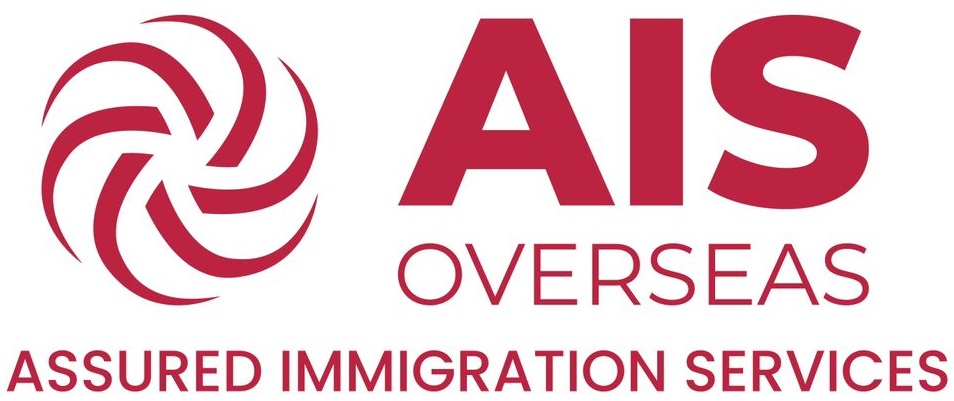
Study in Europe
Sign up for a free expert consultation
Why Study in Europe?
- 688 QS Ranking Universities
- 18 Months of Post Study Work Permit
- 108,000 Student visas issued in 2023
- Tuition Fees 6,000 – 15,000 EUR/academic year
- Scholarship worth 1,515 EUR to 10,000 EUR
- Get a Visa in 30 to 90 days
Why apply for Europe Student Visa?
The finest nations to study abroad in are those in Europe. The best universities in the world are located there. Numerous scholarships are available for overseas students in the nation. Numerous European colleges are well-known for offering reasonably priced, high-quality education. Students who choose to study in European nations do so in search of superior employment opportunities. With all the assistance and support required, AIS Overseas can help you realize your dream of studying in Europe.
Do You Need Help To Study Abroad? AIS Overseas is available to help you in every manner.
Your stepping stone to a European career
Studying abroad in Europe is a fantastic option for students. These nations adhere to well-established educational frameworks. Students can access the European labor market while studying there. Europe is a great place for students looking for knowledge and excellent career chances because there are so many countries to select from and access to the single market.
Types of Europe Student Visa
Students looking to study in Europe have access to a range of visa options. The most crucial ones are as follows:
Europe Schengen visa
For foreign students wishing to study in a Schengen nation, this is a temporary three-month student visa. When this visa expires, it can be renewed, and the student can apply for a resident permit if accepted into the program. If the organization does not require it, a Schengen study visa may be issued without the necessity for an IELTS or other language exam.
Long stay visa
International students who enrol in courses or programs that require a stay of more than six months are typically granted this long-stay visa. This visa also includes a residency permit.
Student visa in Europe
The most typical type of visa for overseas students is this one. A student may apply for this visa after receiving an admission letter or an offer of admission. Generally, students are allowed entry into the nation to enrol in a certain course or program at that university.
What are the Best universities in Europe?
The top universities are mostly found in Europe. In all, 688 European universities are considered to be the greatest. The high caliber of teaching, cutting-edge facilities, research capabilities, accessibility to higher education, and numerous other sustainable aspects account for the top ranking of EU universities.
- University of Oxford
- University of Cambridge
- Imperial College London
- UCL
- University of Edinburgh
- King’s College London
- London School of Economics and Political Science
- University of Manchester
- University of Bristol
- University of Glasgow
Intakes in Europe
The universities in Europe accept three intakes annually.
|
Intakes |
Study Program |
Admission deadlines |
|
Spring |
Undergraduate and Postgraduate |
August to December |
|
Fall |
Undergraduate and Postgraduate |
December to January |
|
Summer |
Undergraduate and Postgraduate |
May to August |
Europe's best universities: QS World Ranking 2024
This is the QS World rating for 2024's top 10 EU countries.
|
Name of the University |
QS Rank 2024 |
|
University of Cambridge |
2 |
|
University of Oxford |
3 |
|
Imperial College London |
6 |
|
ETH Zurich |
7 |
|
UCL |
9 |
|
The University of Edinburgh |
22 |
|
Université PSL |
24 |
|
The University of Manchester |
32 |
|
EPFL |
36 |
|
Technical University of Munich |
37 |
Europe Student Visa Eligibility
- No upper age limit. Applications may be submitted by anyone older than 17.
- Must achieve a 50% increase in their prior academic standing.
- To assign seats, several colleges administer admission tests.
- Results of English proficiency tests are required in some countries.
- You can visit the university's website if you'd like more about admission to European universities.
Europe study visa requirements
- Application for a visa for a chosen nation
- Evidence that you are of legal age in the nation
- Accurate records from a university in Europe
- Records and proof that you have enough money to cover your bills
- Airline tickets
- Evidence of fulfilling the language requirement
Benefits of Studying in Europe
The most popular place for many students to establish themselves overseas is Europe. Students may count on a welcoming, multicultural environment in addition to receiving a top-notch education in their fields of study.
Prestigious universities
- Study Scholarships and Tuition waivers are available in some countries
- Many job possibilities
- Diverse environment
- Cost-effective education
How to apply for a European student Visa?
Step 1: Find out if you are eligible to apply for a visa to Europe.
Step 2: Prepare by gathering all necessary paperwork.
Step 3: Do an online visa application for Europe.
Step 4: Await the status of the approval.
Step 5: Take a plane to study in Europe.
Europe Student Visa Cost
Studying in a European university will cost different depending on your course, country, and university. Subsidized education is available in several nations. AIS Overseas can offer you advice on what to do depending on your financial situation and educational objectives.
Working while studying in Europe:
Students are permitted to work a certain number of hours per year in some European nations. But this can't be a full-time job—only something to do on the side.
| Study Program | Average Tuition Fees in EUR |
| Bachelor’s Degrees |
4,500 EUR/year for EU/EEA-students 8,600 EUR/year for students outside EU/EEA |
| Master’s Degree |
5,100 EUR/year for EU/EEA-students 10,170 EUR/year for students outside EU/EEA |
Working in Europe after graduation:
Graduates can find a variety of jobs in European nations. Graduates must apply for a work permit or temporary residence as soon as possible to remain in the nation. You may better plan your career and educational path in Europe by working with your AIS Overseas consultant to help you through this process.
Europe Student Visa Processing Time:
A European student visa takes two to six months to process. The type of visa determines the approval time.
Europe Student Visa Processing Time
The processing time for a European student visa is 2 to 6 months. The approval time varies depending on the visa type.
International Student Scholarships in Europe
|
Name of the Scholarship |
Amount (Per Year) |
|
DAAD Scholarship Programs |
14,400€ |
|
EMS Undergraduate Scholarship |
50% waivers on tuition costs |
|
EMS Scholarship for Master’s and doctoral courses |
18,000€ |
|
Konrad-Adenauer-Stiftung (KAS) |
14,400€ |
|
Heinrich Boll Foundation Scholarship |
Tuition fees, monthly allowances |
|
Deutschland Stipendium National Scholarship Programme |
3,600€ |
|
Padua International Excellence Scholarship Programme |
8,000€ |
|
Bocconi Merit and International Awards |
12,000€ |
|
Latvian Government Study Scholarships |
8040€ |
|
Liepaja University Scholarships |
6,000€ |
AIS Overseas –Europe Study Visa Consultants
To help applicants who want to study in Europe, AIS Overseas can provide more essential support. The procedure for support consists of ,
- Free Counseling : Free Counseling regarding course and university choices.
- Campus Ready Program : Take the most suitable flight to Europe.
- Course Recommendation AIS Path provides the most appropriate concepts for your academic and professional alternatives.
- Europe Student Visa : Obtaining a European student visa is made easier for you by our knowledgeable staff.
Other Services
|
STATEMENT OF PURPOSE |
LETTERS OF RECOMMENDATION |
OVERSEAS EDUCATION LOAN |
|
COUNTRY SPECIFIC ADMISSION |
COURSE RECOMMENDATION |
DOCUMENT PROCUREMENT |
Frequently Asked Questions
Several universities in Europe offer programs taught in English. Here is a list of the top European nations where you can further your studies if that's your goal.
- Netherlands
- France
- Germany
- United Kingdom
- Spain
- Italy
- Portugal
- Switzerland
- Sweden
- Ireland
You can study in certain European nations without taking the IELTS exam. International students are accepted by Germany, Ireland, the UK, Spain, France, Italy, Greece, Poland, and Latvia without taking the IELTS score into account. Universities assess applicants' language skills in their home tongue or in English, depending on their chosen study language, before granting admission.
Europe experiences three main seasons: summer, winter, and fall. You can check the intakes based on the nation, university, and course you intend to enroll in.
|
Intakes |
Study Program |
Admission deadlines |
|
Spring |
Undergraduate and Postgraduate |
August to December |
|
Fall |
Undergraduate and Postgraduate |
December to January |
|
Summer |
Undergraduate and Postgraduate |
May to August |
A lot of European nations permit students to work part-time jobs while they are in school. Non-EU students are permitted to work up to 20 part-time hours and 40 full-time hours per week. Students may only work ten hours per week while enrolled in courses that count toward their degree.
After completing their studies in Germany, international students are not eligible to apply for permanent residence or citizenship. You must first find employment in Germany and remain employed there for a minimum of two years. You can then seek for permanent residence in Germany.
Studying in Europe can be expensive depending on the nation, course, and university you choose. The annual tuition fee typically falls between €1,500 and €25,000. Furthermore, the costs associated with lodging, transportation, and meals will be covered. Look into affordable learning institutions and EU scholarships to lessen the financial burden.


